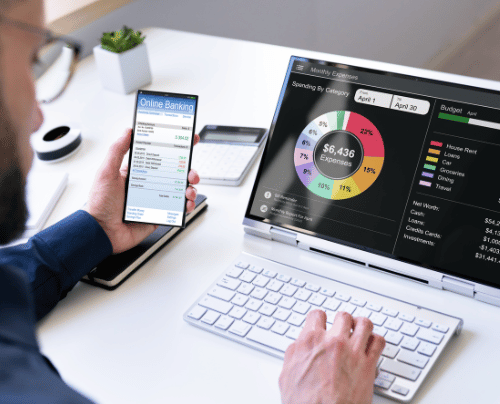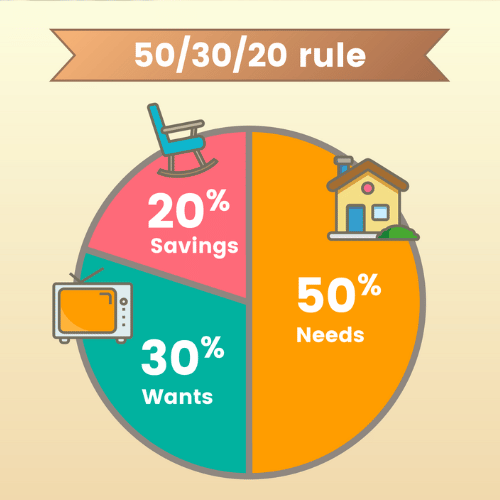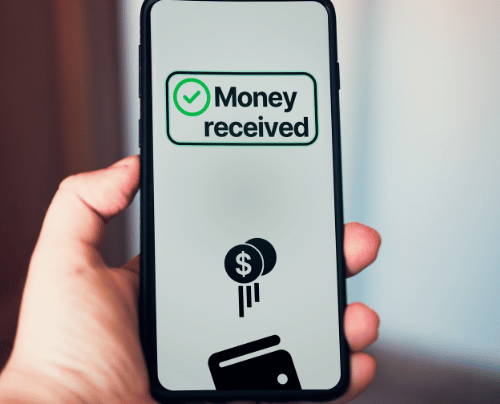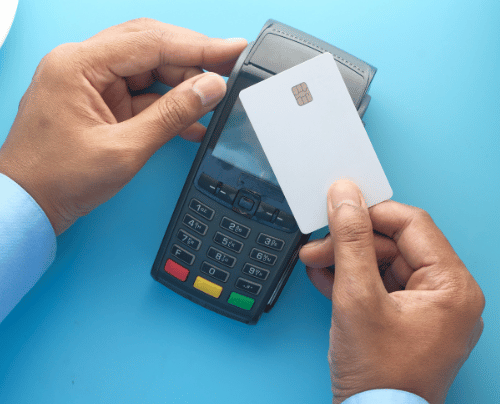5 Budgeting Tips to Save More This Month
Discover simple yet powerful strategies to take control of your finances and boost your savings. This blog covers actionable tips, from tracking your expenses to automating your savings, and even avoiding common impulse purchases that drain your wallet. Learn how to implement the 50/30/20 budgeting rule, set realistic financial goals, and explore smart places to grow your money. Whether you’re new to budgeting or looking to refine your skills, these tips will help you achieve your financial goals and build a stronger financial future.
Sarkis Gevorkyan
12/9/20244 min read


Managing your finances doesn’t have to feel overwhelming. With a few simple strategies, you can take control of your spending and start saving more money right away. Whether you’re looking to pay off debt, build an emergency fund, or work towards a big purchase, these budgeting tips will help you stay on track.
Let's Jump into the 5 Tips to Save More this Month...
1. Track Your Expenses
The first step to better budgeting is understanding where your money goes. Use an app, a spreadsheet, or even a notebook to log your daily expenses. Once you’ve tracked your spending for a month, you’ll start to see patterns and areas where you can cut back. Ask yourself these questions: "How many times did I eat out this month?" "Did the Amazon driver come by my house too many times this month?" "Did I need to buy that fancy espresso machine that I haven't used yet?" There usually is somewhere you can cut back to make room for more important priorities.


2. Set Realistic Goals
It’s easier to stick to a budget when you have clear, achievable goals. Whether it’s saving $500 for an emergency fund or cutting dining-out expenses by 20%, define what you’re working towards. Breaking your goals into smaller, manageable milestones will help keep you motivated. Remember, it is okay to start with baby steps when it comes to your finances. You must first learn how to manage a small amount of money before you are able to effectively manage a bigger sum. Building those good habits will be crucial in helping you reach your short-term and long-term goals. No wonder why lottery winners usually lose the massive amounts of fortune they acquire. They didn't first learn how to invest and spend wisely so they ended up squandering the money on frivolous purchases.


3. Embrace the 50/30/20 Rule
There are many different systems you may follow but one that majority of experts suggest is the 50/30/20 rule. This popular budgeting method goes as follows:
50% of your income goes to needs (housing, utilities, groceries).
30% is for wants (entertainment, dining out).
20% goes towards savings and debt repayment.
Adjust these percentages based on your financial situation, but this structure is a great starting point for anyone looking to budget effectively. Keeping your needs at 50% of your income will ensure you are not overextending your money and putting yourself in a bad position for the future. It is easier to keep expenses low when they are already low, versus trying to lower expenses after you take on big responsibilities like rent for a bigger house or a car payment on a luxury car.


4. Automate Your Savings
Take the effort out of saving by automating it. Set up automatic transfers to your savings account each payday. This way, you’re prioritizing saving before spending, and it becomes a habit over time. As George S. Clason writes in The Richest Man in Babylon, 'A part of all you earn is yours to keep.' This timeless principle reminds us of the importance of prioritizing savings and treating it as the first "expense" before anything else. Recommended places to save this money include high-yield savings accounts, which offer competitive interest rates while keeping your funds accessible, or certificates of deposit (CDs) for fixed-term savings with higher returns. For longer-term goals, consider low-risk investment options like index funds or bonds to help your money grow over time.


5. Avoid Impulse Purchases
Impulse spending is one of the biggest budget breakers because they are often low-cost, habitual expenses that don’t feel significant in the moment. However, over time, they accumulate and prevent you from putting that money toward your financial goals. Examples include: Grabbing a soda, energy drink, or bag of chips at the checkout; a daily coffee or specialty drink for $5 that can add up to over $100 a month: and even spending $10-$15 per meal a few times a week can easily eat into your monthly food budget. Planning meals to cook at home, making your own coffee and preparing snacks beforehand is a healthier and cheaper alternative. Be mindful of these common pitfalls to help you save and allocate your funds more wisely. Before making an unplanned purchase, wait 24 hours and ask yourself if it aligns with your financial goals. Often, the urge to buy will fade, saving you money in the long run.


Final Thoughts
Budgeting is about progress, not perfection. By implementing these tips, you can start to see meaningful changes in your finances. Remember, small steps add up over time, and the effort you put into budgeting today will set you up for success tomorrow. Good luck on your journey to achieving financial freedom!


